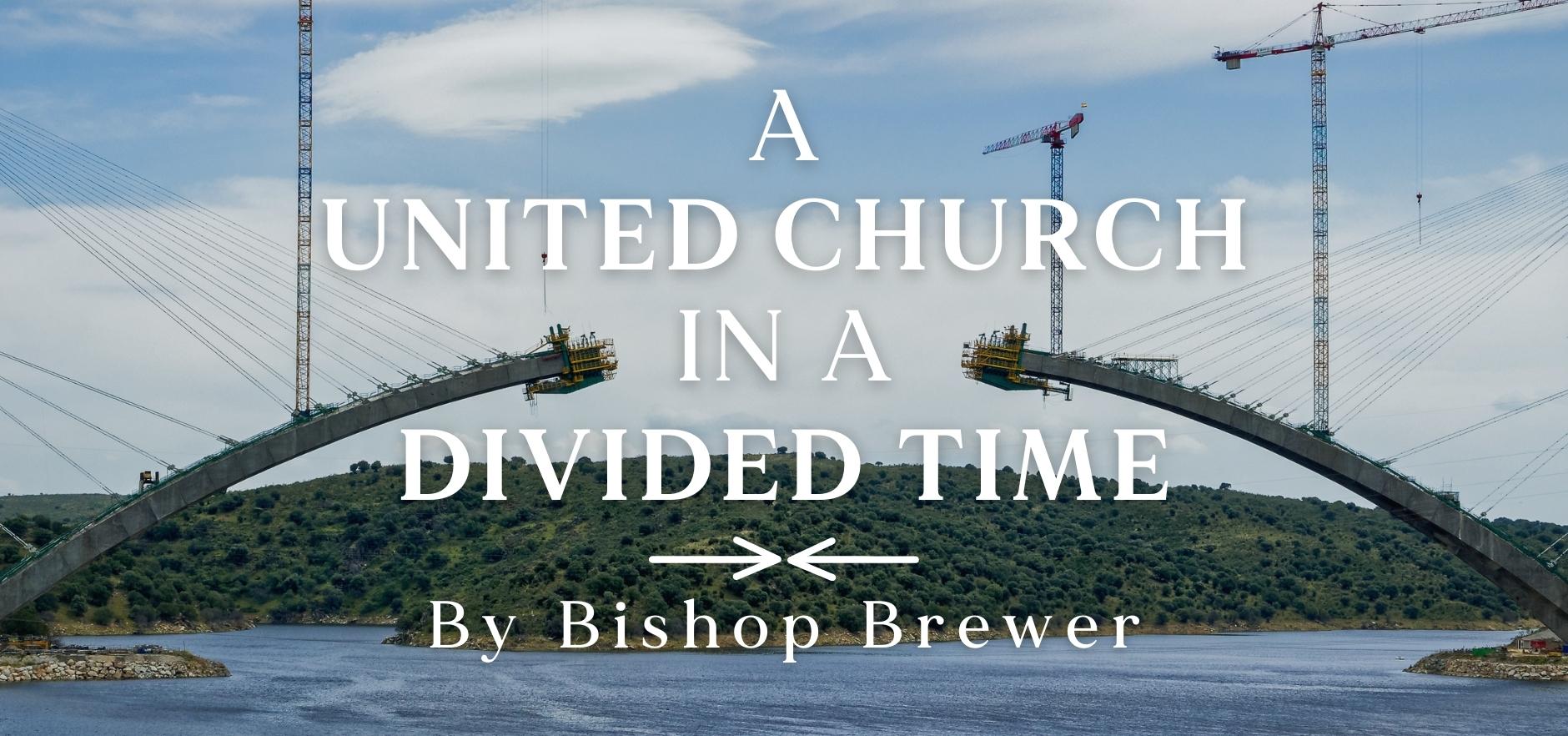A United Church in a Divided Time
Recently I found a quote online that I thought fitting for this time in our history:
“No church gravitates toward unity. We have to contend for unity against the gravitational pull toward selfishness and hypocrisy” (Barnabas Piper).
But in our contentious culture, such words can be easily misunderstood. Contending for unity does not mean drawing battle lines to separate ourselves from those who disagree with us. You will not find that course of action supported by the gospel.
Instead, and quite remarkably, the gospel calls us not to set up battle lines against anyone. We are called to love even our enemies. The only foes with which we contend are the supernatural forces of darkness – not any of our fellow human beings. We follow Christ, who invites us to come to Him who is “gentle and humble in heart” and gives rest to our souls (Matt. 11:29b).
To contend for unity invites into a posture different from “cancel culture” and “us versus them.” Instead, it calls us to take the posture of a curious listener and a willingness to see the human being behind the opinion we abhor. So, instead of disagreeing with someone straightaway, perhaps the better strategy is to ask a question. Learn more about what they mean. Ask what has led them to form this position. Listen to their stories. Pray for them. Learn with them.
To take that position is not an abdication of your own; it is a way to build bridges with those with whom you disagree. You won’t find that strategy on television or in much political debate. However, you may meet people who have used their opinions to isolate themselves and are hungry for connections, but the only way they know how to relate is to declare and defend their positions.
As I see it, various recent events have caused us to live more in isolation today than I can remember. And it’s not just the coronavirus or even politics. So many circumstances have divided us along lines of race, neighborhood and economics. And institutions such as the civic town hall and even the church have waned in influence, so we are less likely than ever to be friends with people unlike us. We have thus lost the sense of the “common good” and have instead moved to a political party’s vision for the common good (a vast difference).
Politics used to be a place where we were willing to work through differences around a democratic process that presumed tolerance, the capacity to agree to disagree and political compromise in the service of a greater good: the unity of its citizens.
But today, “the common good” of society has become individualized to the “preferred good” of some of its citizens at the expense of others. So all of us fight for the triumph of our preferred vision, wanting more than anything for “our side” to win. This preferred way of doing politics and social order has brought us to the crisis that exists today. It’s a crisis of isolation, fear, anger at others and a fight to preserve “our way of life.”
Jesus gives us a different vision. We are called to receive a unity God is giving us in Jesus Christ and find ways to live out that unity — in the midst of often-significant differences. This vision of unity is based on what we have received in Jesus: his love, his forgiveness and his triumph over sin, disease, poverty and division.
An important event for me was attending a screening of the documentary “Emanuel,” produced by Viola Davis and Steph Curry. It tells the story of the horrific tragedy that occurred when Dylan Roof opened fire on a prayer meeting at Emanuel African Methodist Episcopal Church in Charleston, South Carolina, killing nine precious people.
But the story of Emanuel Church tells about more than a tragedy. It also shares how the congregants made the decision as a church to forgive. In fact, when Dylan Roof met with the relatives of those who had died, their united message was “We forgive you. Repent and believe.” Their grace-filled actions affirmed the truth of their message. The courageous witness of those Christians shocked a nation and caused many nonbelievers to sit up and take notice. This was the unity of the gospel in action.
Such a church, united in the gospel, is the only kind of church that can be a true force for good in our society. This is not a self-serving church, but a serving church – a church that has something to offer in the face of the deep divisions all around us. We will not always agree; but God help us to be a people who are committed to the witness of unity in this hostile and divided world.
This column from The Rt. Rev. Gregory O. Brewer was originally published in the July-August, 2020, edition of the Central Florida Episcopalian and was recently reprinted in the Autumn 2022 edition of The Anglican Digest.

